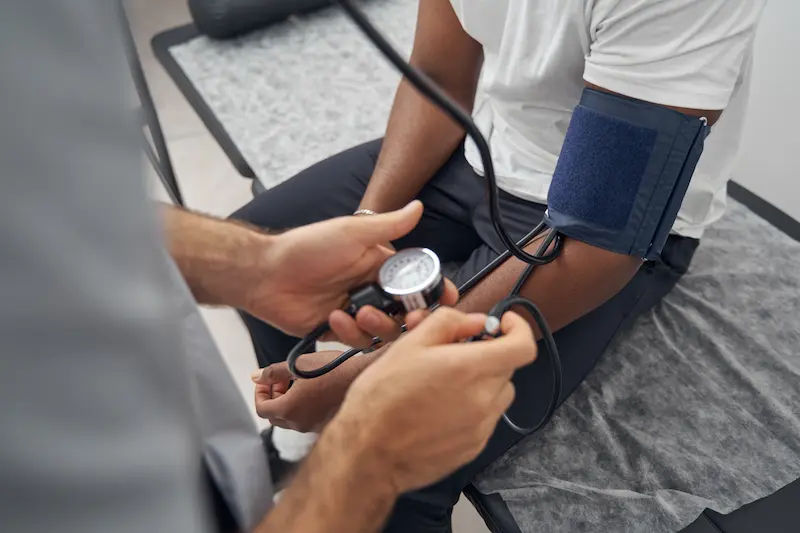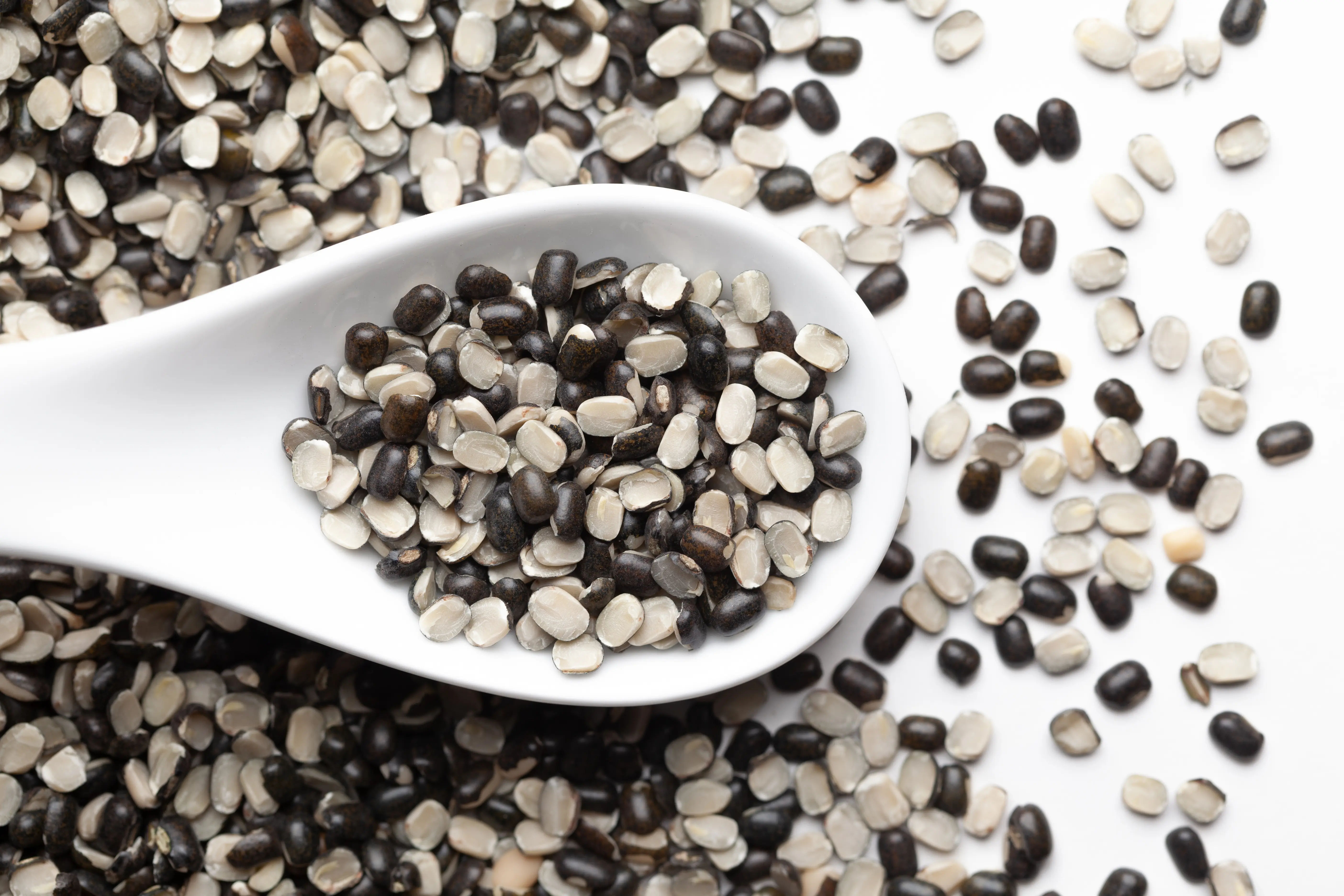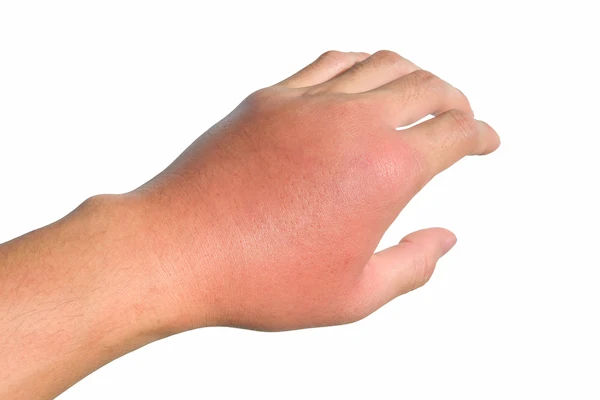Guide to Common Sickness In Summer
Know about summer sicknesses, why we are susceptible, the role of elements like heat, environment, humidity and more.


Introduction
Summer beckons with long, sunny days perfect for beaches, barbecues, and outdoor adventures. However, the season's high temperatures, humidity, and changes in our activities also create a perfect storm for specific health issues. From the severe threat of heatstroke to the common misery of food poisoning, understanding these common summer sicknesses is your first line of defense. This comprehensive guide will walk you through the most frequent warm-weather ailments, explaining their causes, key symptoms, and, most importantly, how to prevent them.
Why Are We More Prone to Illness in Summer?
The summer months present unique environmental and behavioural challenges that can compromise our health.
The Role of Heat and Humidity
Extreme heat forces our bodies to work overtime to maintain a core temperature. High humidity adds to this burden by impairing sweat evaporation, our body's natural cooling mechanism. This can quickly lead to dehydration and electrolyte imbalance, weakening the immune system and making us more susceptible to viruses and bacteria.
Consult a General Practitioner for Personalised Advice
Changes in Behaviour and Environment
Summer shifts our routines. We eat more outdoors at picnics and barbecues, where food safety can be lax. We swim in communal pools and natural bodies of water that can harbour germs. We spend more time in wooded or grassy areas, increasing exposure to insects like ticks and mosquitoes. These behavioural changes directly influence the types of illnesses we encounter.
Heat-Related Illnesses: From Exhaustion to Stroke
Heat-related illnesses are a spectrum, with heat stroke being a life-threatening condition.
Heat Exhaustion: Signs and Immediate Response
Heat exhaustion occurs after prolonged exposure to high temperatures combined with inadequate hydration. Symptoms include heavy sweating, cold/clammy skin, a fast but weak pulse, nausea, dizziness, and muscle cramps. Immediate response is critical: move to a cool place, sip water, and apply cool, wet cloths to the body.
Heat Stroke: A Medical Emergency
Heat stroke is the progression of heat exhaustion and requires emergency care. The body's temperature regulation system fails, and core temperature can rise above 104°F (40°C). Key signs include hot, red, dry skin (sweating may have stopped), a rapid and strong pulse, confusion, and loss of consciousness. This is a medical emergency—call for help immediately.
2. Food Poisoning: The Unwelcome BBQ Guest
Warmer temperatures provide an ideal breeding ground for bacteria like Salmonella, E. coli, and Listeria to multiply on food.
How Summer Heat Accelerates Food Spoilage
The "Danger Zone" for food is between 40°F and 140°F (4°C and 60°C). In summer, perishable foods left out on a picnic table can enter this zone in minutes. Preventing food poisoning at a picnic is about diligence: keep cold foods cold (in a cooler with ice packs) and hot foods hot (on a grill or chafing dish), and don't let food sit out for more than two hours (one hour if it's above 90°F/32°C outside).
Waterborne Illnesses: Pool, Lake, and Ocean Risks
Water activities are a summer staple, but water can carry germs.
Swimmer's Ear (Otitis Externa)
This is an infection of the outer ear canal, often caused by water remaining in the ear after swimming, creating a moist environment for bacteria to grow. Symptoms include itchiness, redness, discomfort, and pus drainage. The best treatment for swimmer's ear often involves antibiotic eardrops prescribed by a doctor. To prevent it, dry ears thoroughly after swimming and consider using over-the-counter preventive eardrops.
Sunburn and Sun Poisoning: More Than Just Red Skin
The Difference Between Sunburn and Sun Poisoning
A sunburn is skin damage from UV rays, causing redness, pain, and peeling. Sun poisoning is a severe sunburn that triggers a systemic inflammatory response. Symptoms of sun poisoning include severe blistering, swelling, headache, fever, nausea, and dizziness. It often requires medical attention.
Summer Colds and Viral Infections
Colds aren't just for winter. Enteroviruses thrive in summer, causing symptoms like fever, runny nose, and body aches. A common enterovirus is Hand, Foot, and Mouth Disease (HFMD), which spreads easily among children and causes fever, mouth sores, and a rash on hands and feet.
General Summer Health Tips: Your Prevention Playbook
An ounce of prevention is worth a pound of cure, especially in summer.
Hydration: The Golden Rule
Drink water consistently throughout the day, don't wait until you're thirsty. For intense activity or sweating, consider drinks with electrolytes. Monitor urine colour: light yellow means you're well-hydrated.
Smart Food Handling
Use a food thermometer to ensure meats are cooked to safe internal temperatures. Keep raw and cooked foods separate to avoid cross-contamination.
Sun and Insect Safety
Apply broad-spectrum sunscreen with SPF 30+ every two hours. Wear protective clothing and a hat. Use EPA-registered insect repellents containing DEET, picaridin, or oil of lemon eucalyptus to prevent tick and mosquito bites.
When to See a Doctor
While many summer ailments can be managed at home, seek medical attention if you experience:
- Signs of heat stroke (high fever, confusion, loss of consciousness).
- Symptoms of food poisoning or dehydration that are severe or last more than 48 hours.
- A sunburn or rash that is extensive, blistering, or accompanied by fever.
- A tick bite followed by a spreading bullseye rash (a sign of Lyme disease).
- Any illness where symptoms are severe or you are concerned.
If your condition does not improve after trying at-home methods, consult a doctor online with Apollo24|7 for further evaluation and guidance. For persistent gastrointestinal issues, diagnostic tests may be needed; Apollo24|7 offers convenient home collection for a wide range of tests.
Conclusion
Summer should be a time for fun and relaxation, not for battling preventable illnesses. By understanding the risks posed by heat, water, food, and insects, you can take proactive steps to protect yourself and your family. This guide to common sickness in summer empowers you with the knowledge to identify symptoms early, practice effective prevention, and know when it's time to call a healthcare professional. Staying informed and prepared is the simplest way to ensure your summer memories are happy and healthy ones. So, grab your water bottle, lather on that sunscreen, and enjoy everything the season has to offer safely.
Consult a General Practitioner for Personalised Advice
Consult a General Practitioner for Personalised Advice

Dr. Mainak Baksi
General Practitioner
13 Years • MBBS , MD (MPH)
Howrah
Mainak Baksi Clinic, Howrah
(50+ Patients)

Dr Suseela
General Physician
5 Years • MBBS
Bengaluru
Apollo Medical Center, Marathahalli, Bengaluru

Dr. Rajib Ghose
General Physician/ Internal Medicine Specialist
25 Years • MBBS
East Midnapore
VIVEKANANDA SEBA SADAN, East Midnapore

Dr. Utsa Basu
Diabetologist
14 Years • MBBS , MD
Barasat
Diab-Eat-Ease, Barasat
(75+ Patients)

Dr. Shiv Krishna Mitra
General Physician/ Internal Medicine Specialist
15 Years • MBBS GEN. MED. PGDRM, MCH
Kolkata
Samaritan Clinic, Kolkata
Consult a General Practitioner for Personalised Advice

Dr. Mainak Baksi
General Practitioner
13 Years • MBBS , MD (MPH)
Howrah
Mainak Baksi Clinic, Howrah
(50+ Patients)

Dr Suseela
General Physician
5 Years • MBBS
Bengaluru
Apollo Medical Center, Marathahalli, Bengaluru

Dr. Rajib Ghose
General Physician/ Internal Medicine Specialist
25 Years • MBBS
East Midnapore
VIVEKANANDA SEBA SADAN, East Midnapore

Dr. Utsa Basu
Diabetologist
14 Years • MBBS , MD
Barasat
Diab-Eat-Ease, Barasat
(75+ Patients)

Dr. Shiv Krishna Mitra
General Physician/ Internal Medicine Specialist
15 Years • MBBS GEN. MED. PGDRM, MCH
Kolkata
Samaritan Clinic, Kolkata
More articles from General Medical Consultation
Frequently Asked Questions
1. Is there a 'summer flu'?
Yes, but it's not influenza. What people call a 'summer flu' is usually caused by enteroviruses, which are more active in warm weather. Symptoms can include fever, headache, body aches, and sometimes a sore throat or rash, but typically not the respiratory symptoms of winter flu.
2. How can I tell if my summer rash is serious?
Seek medical attention if a rash is all over your body, is accompanied by a fever, shows signs of infection (pus, yellow crust, extreme redness), is painful, or appears after a tick bite. Widespread blistering from a sunburn also warrants a doctor's visit.
3. What are the best home remedies for prickly heat?
The key is to cool and dry the skin. Take cool showers, wear loose, breathable clothing (like cotton), and stay in air-conditioned environments. Calamine lotion or over-the-counter hydrocortisone cream can help relieve itching. Keep the affected area dry.
4. How long does sun poisoning last?
Symptoms of severe sunburn or sun poisoning can last anywhere from 3 to 7 days, depending on the severity. It's crucial to stay hydrated, manage pain with over-the-counter medication (like ibuprofen), and avoid further sun exposure. If symptoms are extreme, see a doctor.
5. What's the most effective way to prevent tick bites while hiking?
Use an EPA-registered insect repellent on skin and clothing. Wear long pants tucked into your socks and long-sleeved shirts in light colours (to spot ticks easily). Stay on cleared trails and avoid tall grass. Perform a full-body tick check immediately after coming indoors and shower within two hours.




